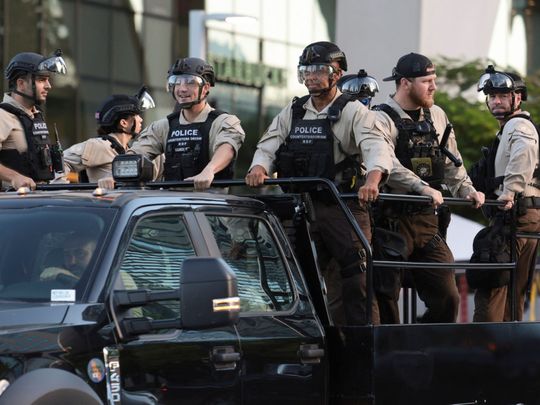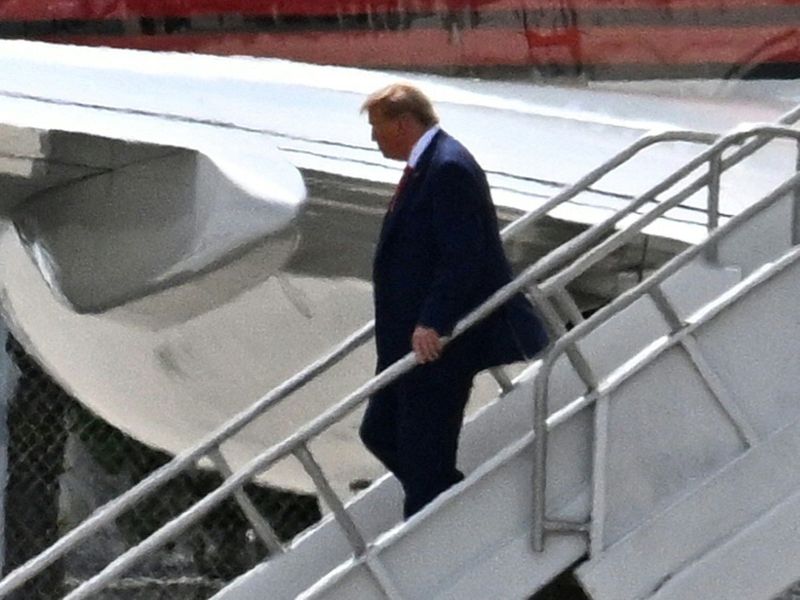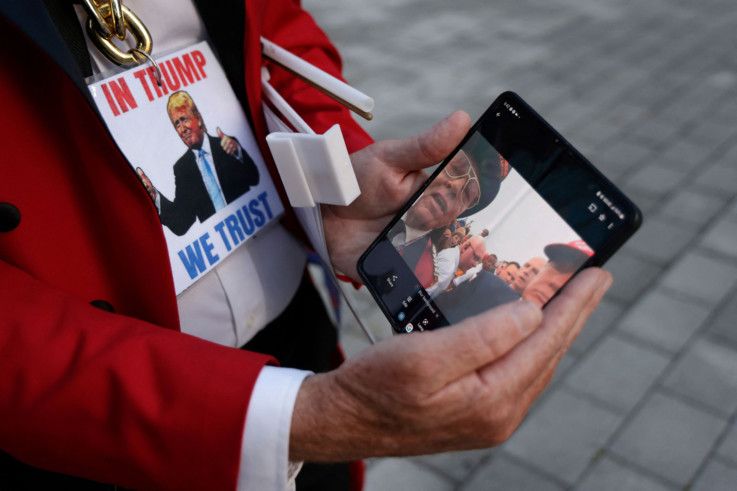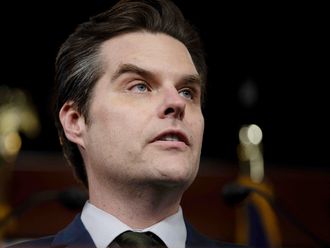
WASHINGTON: US prosecutors who indicted Donald Trump used his own words - and notes jotted down by his lawyers - to build the historic case against the former president.
The 49-page indictment unsealed last week accuses Trump of endangering US national security by hoarding top secret nuclear and defence documents after leaving the White House.
The indictment from special counsel Jack Smith relies heavily on statements made by Trump himself to make the legal case against the 45th US president.
It recounts one instance in which Trump described a Pentagon “plan of attack” on a US rival nation to a writer, publisher and two staff members, none of whom held security clearances.
The former president will be arraigned in federal court in Miami , allowing him to hear prosecutors' charges that he jeopardized national security by mishandling classified information.
The case against him is historic but doesn't prohibit Trump from a third run at the presidency, and he urged his supporters to rally outside the courthouse.
Some had already begun to arrive hours before his late afternoon appearance was scheduled to start. Trump also planned to fly to his golf club in Bedminster, New Jersey, to give remarks this evening.
The former president was arrested and appeared in court in New York in April as part of separate criminal case involving hush money that he is accused of paying to cover up an extramarital affair during the 2016 presidential election. Trump is facing additional potential charges in Georgia and Washington.
But he faces a potential years-long prison sentence in the document case. It also has stood out for both the apparent volume of evidence amassed by prosecutors and the severity of the allegations.
Trump’s campaign has intensified his fundraising efforts in the meantime, including an email Tuesday morning with the subject line: “My last email before my arraignment.”
Trump allegedly told them during the audio-recorded meeting at his golf club in New Jersey that the plan was ‘highly confidential’ and ‘secret,’” the indictment says.
Trump is quoted as telling them “as president I could have declassified it” and “Now I can’t, you know, but this is still secret.”
The target of the attack is identified in the indictment only as “Country A.” According to US media, the nation involved was Iran.
The indictment also uses Trump’s own words to establish that he was aware - even before winning the 2016 presidential election - of the importance of safeguarding classified information.

“In my administration I’m going to enforce all laws concerning the protection of classified information,” the then Republican presidential candidate said in August 2016. “No one will be above the law.”
And as president, the indictment notes, Trump issued a statement in July 2018 stressing his “unique, Constitutional responsibility to protect the Nation’s classified information.”
‘Don’t play ball’
The indictment also recounts meetings between Trump and two of his lawyers - identified as Attorney 1 and Attorney 2 - to implicate him in an effort to mislead investigators seeking the return of documents taken from the White House to Trump’s Mar-a-Lago residence in Florida.
According to notes kept by Attorney 1 during a meeting held to discuss how to respond to a May 2022 grand jury subpoena, Trump said: “What happens if we just don’t respond at all or don’t play ball with them?
“I don’t want anybody looking through my boxes, I really don’t,” Trump reportedly said. “Wouldn’t it be better if we just told them we don’t have anything here?”
The dozens of boxes containing documents with Top Secret, Secret and Confidential markings were stashed at Mar-a-Lago in locations including a ballroom, a bathroom, a storage room and Trump’s bedroom.

According to the indictment, they were moved around at Trump’s direction by the former president’s personal assistant, Walt Nauta, a US Navy veteran who also faces charges as a co-conspirator.
Trump, the first former US president to face federal charges, is accused of “willful retention of national defence information,” punishable by up to 10 years in prison, conspiracy to obstruct justice, making false statements and other offences.
Meanwhile, US Special Counsel Jack Smith has said Trump will have a “speedy trial” in Miami.
But the complexities of handling highly classified evidence, the degree to which Trump’s legal team challenges the government’s pre-trial motions, and the way the judge manages the schedule could all lead to a trial that is anything but swift, legal experts say.
In every case that I had involving classified information, we never had a speedy trial,” said Stephanie Siegmann, a former chief of the national security unit of the US Attorney’s Office in Boston, who noted that the evidence-sharing process with Trump’s defense team known as discovery could potentially take a year.
This case will be designated complex because it involves classified information,” added Siegmann, now a partner with the law firm Hinkley Allen.
The US Constitution guarantees criminal defendants the right to a speedy trial, and defendants in federal cases are allowed to have a trial start as soon as 70 days from the time they are indicted.
But in most criminal cases, both sides can agree to pause that clock in order to give them more time to prepare.
Delays could be troublesome for Trump, who is currently the Republican front-runner for the 2024 presidential election and may not wish to have the trial looming as the elections approach.
At the same time, his lawyers may want to delay the process for legal or political reasons by lodging objections each step of the way - a tactic he has used in the past.
Smith’s pledge for a speedy trial makes sense because he doesn’t want to interfere with the election process, said defense attorney Mark Zaid. “But that was just wishful thinking.
The reality is the Trump team will be controlling much of the timing of the litigation.” A spokesman for Smith’s office declined to comment beyond his public statements, while an attorney for Trump did not immediately respond to a request for comment.
Espionage Act cases like Trump’s cases are especially complex because some of the key evidence presented during a public trial is classified.
As such, prosecutors need to balance two seemingly competing forces: The need to protect the nation’s closely held secrets while still ensuring that Trump is afforded due process by having access to the evidence to help him prepare a defense.
Many other Espionage Act cases have hinged on a few classified records or even just one document, such as in Boston where a National Guardsman stands accused of leaking military secrets.
Trump, by contrast, is facing charges over 31 top secret or secret documents - a far greater number.






